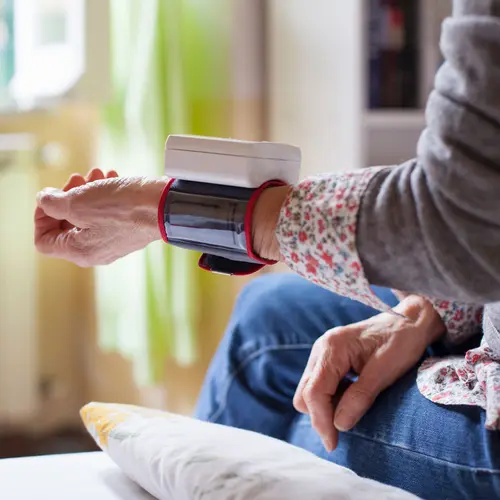After a stroke, you’re probably eager to get back to life as you knew it. But you may have some concerns about going home from the hospital as well.
A stroke can change many things about your life. Some of these changes are short-term, while others may last longer or even be permanent. If your doctor has given you the green light to go home, there’s plenty you can do to stay safe and healthy as you readjust.
Go Easy On Yourself
It’ll take time to feel like yourself again. You’ll probably make the most progress in the first 3 to 4 months, but recovery can take as long as a year or two.
Plan to ease back into your everyday life slowly. Chances are, you’ll have less energy than you did before your stroke, at least for a while. You might have trouble doing things like getting dressed, walking, or talking. You also may notice that it takes more effort to remember things or concentrate.
Having a stroke can take a toll on your emotions, too. You might feel overwhelmed, stressed, angry, or sad. That’s normal, but it can be draining.
It’s important to line up help. Ask family members, friends, or other people in your community to lend a hand around the house. If you’re having trouble with everyday tasks and don’t have a caregiver (like a healthy spouse), talk to your medical team about ways to get help.
Make Your Health a Priority
Having one stroke raises your chances of having another. But there’s a lot you can do to lower that risk and boost your overall health.
Eating well is important: Fruits, vegetables, lean proteins, whole grains, and healthy plant oils (like olive oil) are smart choices. Watch the amount of saturated fat, fried foods, and sugar you eat. Your doctor may suggest gentle exercise, too. Ask what might be safe for you.
If your doctor recommended medicine to help you recover or lessen the chances of another stroke, take it as instructed. This might include medication to control high blood pressure, prevent blood clots, or remove fatty deposits called plaques from your arteries. If you have side effects that bother you, let your medical team know. But never change your dosage or stop a medication without talking to your doctor.
Safeguard Your Space
Falling after a stroke is common -- and it can be dangerous. If you fall and have pain, bruising, or bleeding, or don’t feel right, call 911 or go to the emergency room right away.
Ask your spouse, caregiver, or another person to:
- Make sure there’s a clear, uncluttered path to any place you have to go -- your bedroom, bathroom, and the kitchen, for example.
- Put in handrails and other safety devices -- like a raised toilet seat or tub bench -- if you need them. Make sure all rugs are anchored in place with non-stick tape or take them up.
- Put an anti-skid mat or strips in your bathtub.
You also should wear non-skid shoes around the house, and make a point not to rush. Moving slowly and carefully can help you avoid falls and other injuries.
Work With Pros
Being at home doesn’t mean you’re on your own. As you recover, you can work with a few people who can help:
- A speech or language therapist can help you communicate and work on your memory. A speech therapist also can help you with eating and swallowing.
- A physical therapist can help you strengthen your muscles, regain balance, and move around safely.
- An occupational therapist can make changes around your house (and workplace), and teach you new ways to do everyday things like eating and cleaning.
- Your doctor or medical team will help with any stroke-related health problems you may have, like trouble controlling your bladder or bowels. Your doctor may also say if and when it’s safe for you to drive again.
Talk to Others
Stroke recovery can be slow and frustrating at times. Talking to your health care team or a mental health professional -- a psychologist or counselor -- can help you deal with your feelings. Joining a stroke support group is also a good way to get tips and learn new ways to do things.
Talk to your friends and family about what you’re feeling, too. If they’ve never had a stroke, they may not understand what you’re going through unless you share with them.
Don’t Wait to Get Help
Once you’ve had a stroke, your chances of having another one are higher. If you notice any of the following signs, call 911 right away:
- Your face droops.
- Your arm is weak or another area of your body is numb (especially on one side).
- You suddenly have a harder time talking.
- You’re suddenly confused.
- You have new vision problems.
- You have a sudden and severe pain in your belly or a headache.
- There’s blood in your urine or vomit, or unexplained bleeding from your gums or nose.
- There’s unexplained bruising or red or purple blotches on your skin.

